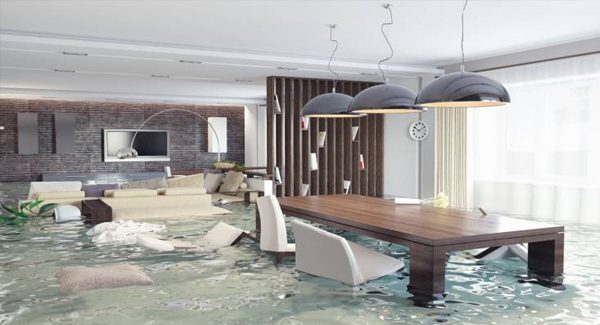When disaster strikes your Association, are you prepared? Here are four steps to take when faced with damage to your Association’s property.
1. Get the Full Story
Define the cause and scope of the damage. Secure the area around the damage and identify the appropriate parties to evaluate the damage, such as plumbers, roofers, or general contractors. Depending on the scale of the damage, multiple parties may be involved.
Document and inventory the damage thoroughly, including photo and video. In the case of emergency-level damage, the responding Fire or Police Department should provide a report upon request. This documentation will be essential if your Association files an insurance claim, but is also highly recommended for the Association records.
Determine the liable party for each damaged element. In the case of condominium associations, the Illinois Condominium Property Act (ICPA) specifically defines the boundaries of the units as well as each element of the property as belonging to a specific party, unless otherwise outlined in the Association’s declaration.
Liability can shift depending on the cause and extent of the damage, so it is important to consult with your association attorney and refer back to your Association documents and applicable law when making this determination.
2. File Insurance Claim(s)
If the Association is liable for the cost of repairs, a few questions should be quickly addressed before filing an insurance claim. First, is it an insurable loss? And if so, under which existing policy? Second, after conducting a cost benefit analysis, is it worth filing a claim with the Association’s insurance provider, given the deductible amount and current loss record?
If the answer to both questions above is yes, the Association should move forward with filing the claim(s). Your insurance provider(s) will likely require extensive documentation, and even an on-site inspection, to process the claim.
3. Make Timely Repairs
Time is of the essence. Mitigating the source of the damage is often the most critical step, and should be done as quickly as possible to prevent further harm to the property. However, repairs to damaged property should not be made until the insurance provider has inspected and responded to the claim.
Negligence in making repairs can escalate claims. For example, if the condominium association was negligent in repairing a damaged common element, then the claim for any resulting interior unit damage may evolve from a property damage claim to a liability claim. Similarly, if a unit owner fails to make repairs to the source of damage within their property in a reasonable amount of time, the condominium association can often perform the repair(s) and charge the cost back the unit owner (as outlined in the declaration).
4. Prepare for the Next Disaster
Set your Association up for success. The time spent in setting up prevention and response strategies is well worth the time saved when disaster inevitably strikes.
Conduct an annual review of Association documents and policies. This includes: reviewing the condominium association declaration and bylaws to ensure that they are in compliance with the ICPA; reviewing the governing documents to ensure that they clearly define ownership and liability for all portions of the property, including the common elements, limited common elements, and units; reviewing the Association’s insurance coverage, to ensure compliance with the ICPA and the Association’s requirements under the governing documents; and reviewing the Association’s insurance coverage to ensure that all reasonable risks are covered.
Schedule regular inspections and preventative maintenance. Reduce the Association’s liability by ensuring that the common elements (and limited common elements) are in optimal shape year-round.
Develop relationships with tradespeople that you can call in case of emergency. For those associations that do not have a management company, vetting contractors can be confusing and time consuming. In addition, areas hit with natural disasters often see an increase in scam companies, who go door-to-door offering their services. Be wary, and always do your diligence before contracting for repairs.
Educate unit owners (and non-owner residents) on common risks and preventive measures. Human negligence is an all too common cause of damage, and Associations that take the time to engage with their unit owners to address safety precautions are at less risk overall.
If your community is dealing with legal concerns regarding property damage, do not hesitate to contact our law firm.
Since 1983, KSN has been a legal resource for condominium, homeowner, and townhome associations. Additionally, we represent clients in real estate transactions, collections, landlord/tenant issues, and property tax appeals. We represent thousands of clients and community associations throughout the US with offices in several states including Florida, Illinois, Indiana, and Wisconsin.
Please call 855-537-0500 or visit www.ksnlaw.com.
—
This article is made available by the lawyer or law firm publisher for educational purposes only as well as to give you general information and a general understanding of the law, not to provide specific legal advice. By reading this article you understand that there is no attorney client relationship between you and the article author. This article should not be used as a substitute for competent legal advice from a licensed professional attorney in your state. © 2019 Kovitz Shifrin Nesbit, A Professional Corporation.

